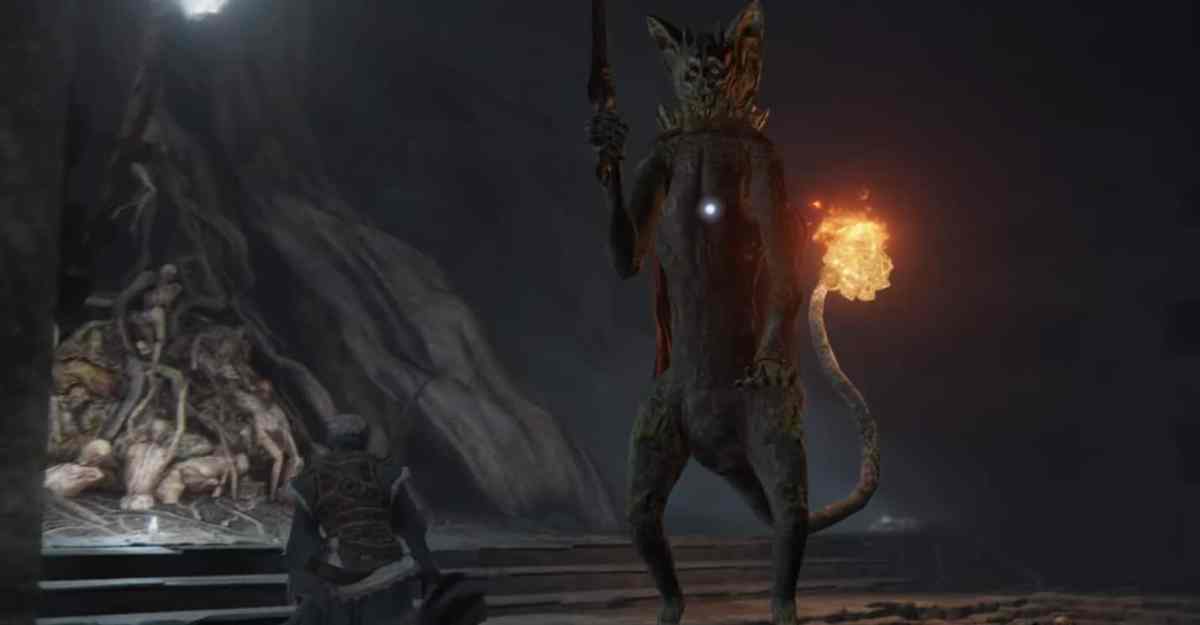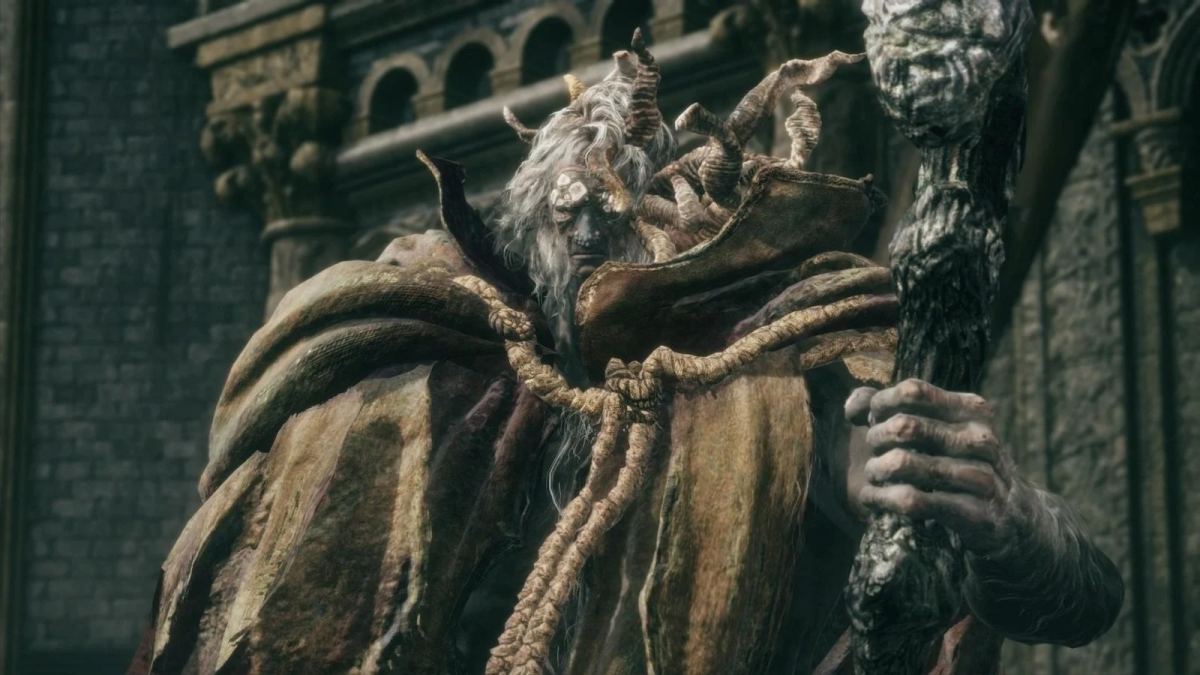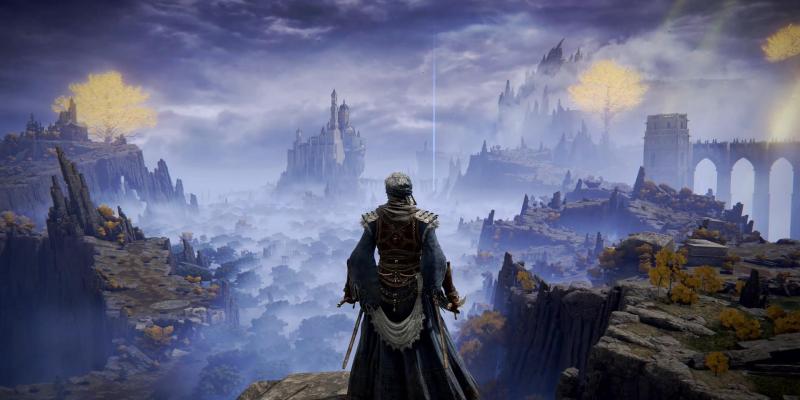There it is, sat on its haunches, watching me with its unblinking eyes that glow a menacing orange. The rigidly straight silhouette reminds me more of a cat than a dog – if cats were the size of a house, with a flaming tale, a giant claymore, and made of stone. I have a second to retrieve the Runes left over from my previous run before the Erdtree Burial Watchdog is off. It chops at me with its sword, belches fire, and floats into the air in an animation so unsettling I initially assume it’s a glitch. Then it crashes down in a devastating area-of-effect attack that doesn’t fail to one-shot my avatar when it connects.
“You Died,” Elden Ring tells me. Again. The Watchdog’s attacks are heavily telegraphed – more so than those of most bosses I recall from the Souls games, Bloodborne, or Sekiro. A couple of the attacks have an odd rhythm to them. The forward sword thrust, for example, takes a few nanoseconds longer to connect than the animation would suggest, so I invariably dodge too early or too late. But I am certain it shouldn’t be this hard. In fact, I almost beat the Watchdog on the first attempt.
“Almost” doesn’t count for anything in FromSoftware games, of course. So here I am, stuck in that peculiar cycle of despairing stubbornness that these games are so good at cultivating. I get there eventually, after being ravaged by the Watchdog for maybe the eighth or ninth time, but the victory feels hollow. I should have done better.

This is the terrifying uncertainty that Elden Ring presents you with. On one hand, it is remarkably, almost disappointingly similar to the Dark Souls series. Besides a few noteworthy variations, like modifications that change a weapon’s special attack, horseback combat, and jump attacks, the mix of light and heavy strikes, blocking, and dodging feels very much like Dark Souls. Likewise, while there are new exploration and upgrade mechanics, like stealth and crafting, the general pattern of checkpoints, health flasks, leveling up, weapon scaling, and other nuances should be familiar to any Souls fan.
But as you play, you come to realize that this familiarity works against you. The new moves are disruptive enough that the old muscle memory responses will often hinder rather than help, and the open world introduces challenges that are alien to Souls veterans – like setting off an alarm in an enemy camp and having to face off a dozen guards at the same time, with no corridor or doorway to act as a chokepoint. Or encountering a dragon that seems resistant to the old hug-the-hind-legs tactic.
The most terrifying challenge of Elden Ring, however, is simply the uncertainty of the open-world map. Open-world convention tells you that the closer an area is to the start of a game, the easier the enemies in that area should be. And while previous FromSoftware games offered some degree of choice – the Ruin Sentinels in Dark Souls II were famously either a brutal early-game boss or a reasonable mid-game challenge, for instance – those games generally followed a much more linear course.

FromSoftware plays by its own conventions, of course, and enjoys subverting them as much as adhering to them. And so there is really no way for a new player to tell how Elden Ring’s open world is designed. Is Stormfoot Catacombs, where I encountered the Watchdog, an early-game area with a boss that should be relatively easy, or is it an encounter meant for a higher-level character? Certainly, it’s placed near the starting area, but if the mounted Tree Sentinel is anything to go by, that doesn’t mean very much.
As a result, there is a kind of dread in looking at the map or distant locations in Elden Ring. More than any other open-world title I have played, it manages to combine the excitement of exploration with the danger of facing an unknown you may well be grossly under-equipped for. That isn’t always an unequivocally pleasant gaming experience, but it is unfailingly captivating.
So perhaps it is reassuring that, after all that, I have much less trouble with Elden Ring’s first compulsory boss – Margit, the Fell Omen – than I did with the Watchdog. Then again, perhaps not, since only a few minutes after felling Margit I succumb to a flock of murderous falcons.
